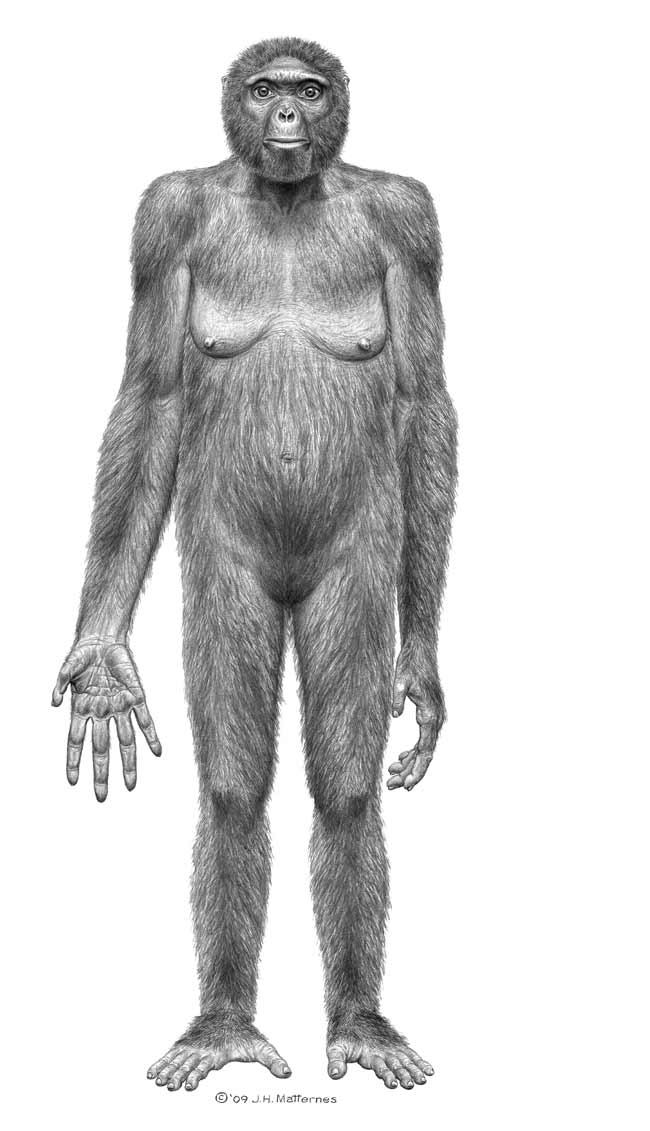4 in 10 Americans Still Hold Creationist Views

If you're in a room of 100 people, odds are likely about 40 think God created humans about 10,000 years ago, part of a philosophy called creationism, according to a Gallup poll reported Friday (Dec. 17). That number is slightly lower than in years past and down from a high of 47 percent in both 1993 and 1999.
And 38 percent of Americans, the poll estimates, believe God guided the process that brought humans from "cavemen" to today's incarnation over millions of years, while 16 percent think humans evolved over millions of years, without any divine intervention.
This secular view, while a relatively small number, is up from 9 percent in 1982, according to Gallup.
Like most American attitudes, Gallup wrote, views on human origins have political consequences. For instance, debates and clashes over which explanations for human origins should be included in school textbooks have persisted for decades. And with 40 percent of Americans continuing to hold to an anti-evolutionary belief about the origin of humans, it is highly likely that these types of debates will continue, according to Gallup.
The findings also stand in stark contrast to another announcement Friday, this one by John Holdren, director of the White House Office of Science and Technology Policy. The memo was issued to federal science agencies to guide them in making rules to ensure scientific integrity.
The Gallup results are based on telephone interviews conducted Dec. 10-12 with a random sample of 1,019 adults, ages 18 and older, living in the continental United States. The findings were weighted by gender, age, race, education, religion and phone lines to make the sample nationally representative.
Americans' views on human origins varied significantly by level of education and religion, the poll found. Those with less education were more likely to hold a creationist view that God created life thousands of years ago, while college graduates were more likely to hold one of the two viewpoints involving evolution.
Sign up for the Live Science daily newsletter now
Get the world’s most fascinating discoveries delivered straight to your inbox.
Perhaps unsurprisingly, Americans who attend church frequently were most likely to accept explanations for the origin of humans that involve God. Still, the creationist viewpoint, which was held by 60 percent of weekly churchgoers, wasn't universal even among the most highly religious group. Also, about a fourth of those who seldom or never attend church choose the creationist view.
A significantly higher percentage of Republicans indicated a creationist view of human origins, which Gallup experts say reflects in part the strong relationship between religion and politics in contemporary America. Republicans are also significantly more likely to attend church weekly than are others. Democrats and Independents showed similar views on human origins:
- Republicans: 36 percent think humans evolved through a God-guided process; 8 percent say God had no part in the process; and 52 percent held the creationist view.
- Democrats: 40 percent agree with evolution through a God-guided process; 20 percent say God had no part in the process; and 34 percent held the creationist view.
- Independents: 39 percent agree with evolution through a God-guided process; 21 percent say God had no part in the process; and 34 percent held the creationist view.
Gallup officials wrote that it's not surprising some 80 percent of Americans hold a view of human origins that involves God, since most Americans believe in God and about 85 percent identify with a religion.
- Top 10 Mysteries of the First Humans
- Top 10 Intelligent Designs (Creation Myths)
- God and Evolution Can Coexist, Scientist Says
You can follow LiveScience Managing Editor Jeanna Bryner on Twitter @jeannabryner.











